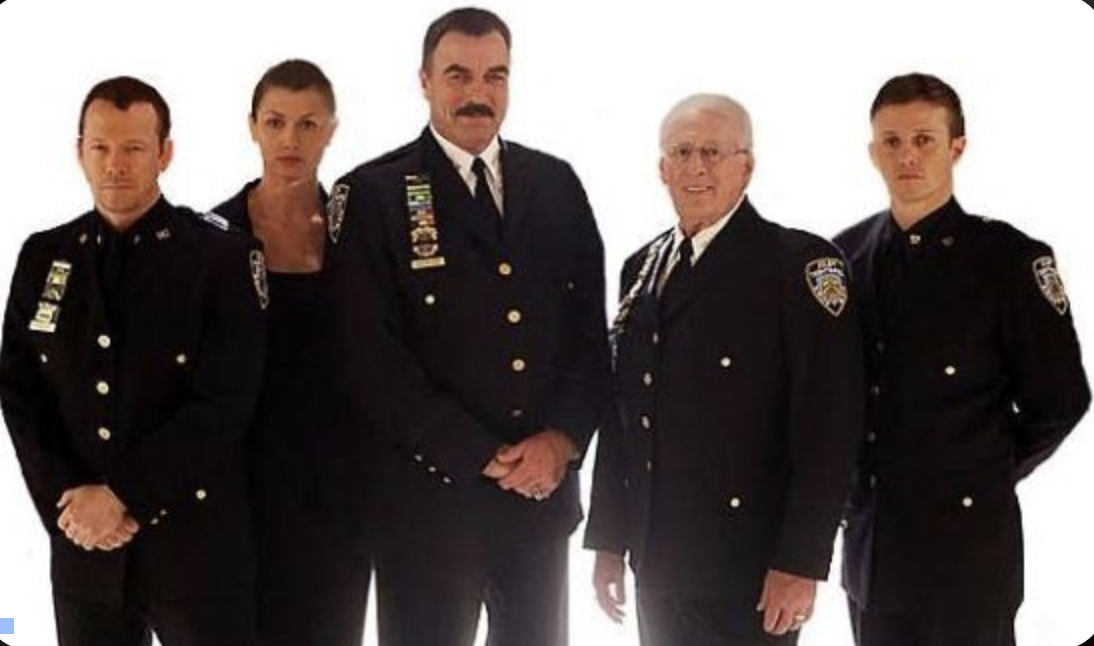
Imagine the familiar setting: Sunday dinner at the Reagan household, the aroma of Frank’s cooking filling the air, the usual lively debate about justice and family. But this time, the cases hitting their desks are ripped straight from the headlines of 2025. How would this staunchly traditional family of law enforcement navigate the complex and often murky waters of social media, deepfakes, and artificial intelligence? Let’s dive into a fascinating hypothetical.
The digital age presents a whole new playing field for crime, and the Reagans would undoubtedly have to adapt their methods. Picture this: a series of incidents where police officers are seemingly caught on video engaging in misconduct. The outrage online is immediate and fierce, threatening to erode public trust. However, Jamie, ever the pragmatist and increasingly tech-savvy member of the force, suspects something is amiss. Could these viral videos be deepfakes, sophisticatedly manipulated media designed to sow discord and undermine the integrity of the NYPD?
Jamie Cracks Cases with Code, Danny Smashes Phones Over… Facebook
This is where Jamie’s analytical mind would truly shine. He’d be the one delving into the intricacies of digital forensics, working with specialized units to analyze video and audio for telltale signs of AI manipulation. Perhaps he’d partner with tech experts, learning to identify the subtle inconsistencies that betray a deepfake. We can envision him meticulously comparing frame rates, analyzing facial movements, and tracing the digital footprints of these fabricated videos. His dedication to truth and his growing understanding of technology would make him the point person for these cutting-edge crimes.
Meanwhile, Danny’s approach to the digital realm would likely be… less refined. Picture him exasperatedly scrolling through inflammatory comments on a social media post accusing the NYPD of brutality based on a deepfake. His instinct, as always, would be to get to the bottom of the real story, but the sheer volume of misinformation and the anonymity of online trolls would undoubtedly frustrate him. We can almost see him throwing his phone onto the couch in exasperation, muttering something about the “damn internet” and longing for the days of tangible evidence and face-to-face confrontations. His old-school methods might clash with the new realities, but his unwavering commitment to justice would still drive him to find the truth, even if it means navigating the chaotic landscape of online narratives.
Frank, as Police Commissioner, would face the monumental task of maintaining public trust in an era where reality itself can be digitally fabricated. He’d likely be navigating press conferences, addressing public concerns about deepfake technology, and emphasizing the importance of due process in the face of viral outrage. His wisdom and calm demeanor would be crucial in reassuring the city while simultaneously pushing the department to adapt to these new threats. He might convene task forces dedicated to understanding and combating digital deception, emphasizing training for officers on identifying and handling cases involving deepfakes and online misinformation.

Erin, as a prosecutor, would face the challenge of bringing perpetrators of digitally-driven crimes to justice. How do you prosecute someone who creates a deepfake that incites violence or ruins a person’s reputation? The legal precedents might be murky, requiring her to be innovative in her approach, perhaps collaborating with legal scholars and tech law experts to build strong cases. She would need to understand the technical aspects of these crimes to effectively argue them in court, ensuring that the law keeps pace with technological advancements.
Even the younger Reagans, like Nicky (if she were still a prominent figure in their lives), might play a role, perhaps offering insights into the nuances of social media culture and online communication that their older relatives might not fully grasp. Their understanding of how information spreads online, the power of influencers, and the dynamics of viral content could be invaluable in understanding the context surrounding these digital crimes.
The introduction of AI into the equation presents another layer of complexity. Imagine a scenario where a seemingly efficient AI surveillance system flags a high number of “suspicious” individuals based on potentially biased algorithms. Frank and his command staff would grapple with the ethical implications of such technology, debating the balance between security and privacy. Danny might be instinctively wary of relying too heavily on machines, preferring his gut instincts and human intelligence, while Jamie might see the potential benefits if the technology is used responsibly and ethically.
The Reagan family, with their strong moral compass and unwavering dedication to justice, would undoubtedly rise to the challenges posed by these modern threats. They would likely blend their traditional values with a necessary adaptation to the digital age. Jamie might become the tech-savvy detective of the future, Erin the sharp legal mind navigating new digital frontiers, and Frank the steady hand guiding the department through unprecedented technological shifts. Danny might still grumble about social media, but his heart and his dedication to truth would remain unwavering, proving that even in 2025, the core values of the Reagan family – loyalty, justice, and unwavering commitment to each other – would be their greatest strength in tackling any crime, no matter how technologically advanced.
